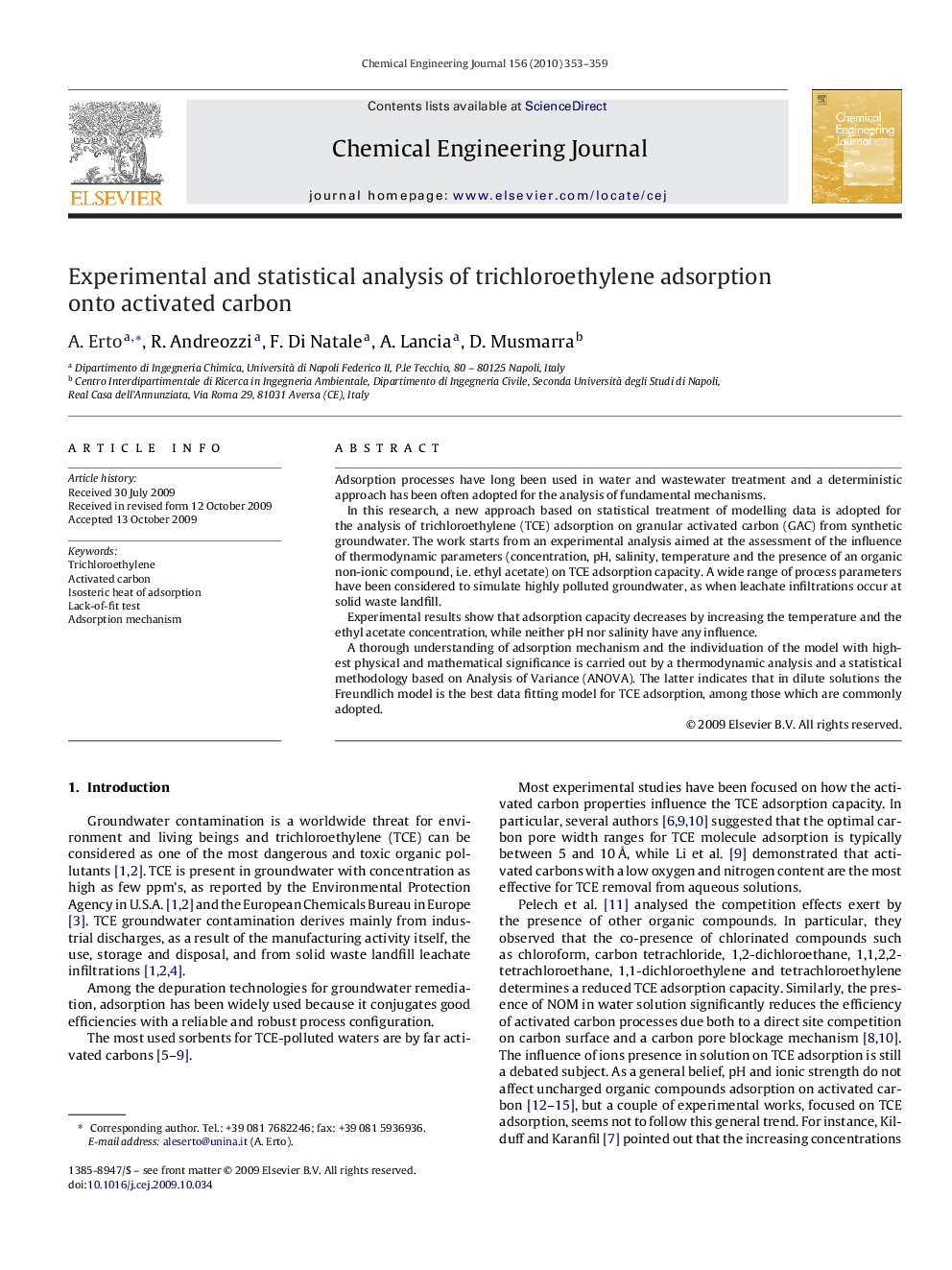| Article ID | Journal | Published Year | Pages | File Type |
|---|---|---|---|---|
| 152055 | Chemical Engineering Journal | 2010 | 7 Pages |
Adsorption processes have long been used in water and wastewater treatment and a deterministic approach has been often adopted for the analysis of fundamental mechanisms.In this research, a new approach based on statistical treatment of modelling data is adopted for the analysis of trichloroethylene (TCE) adsorption on granular activated carbon (GAC) from synthetic groundwater. The work starts from an experimental analysis aimed at the assessment of the influence of thermodynamic parameters (concentration, pH, salinity, temperature and the presence of an organic non-ionic compound, i.e. ethyl acetate) on TCE adsorption capacity. A wide range of process parameters have been considered to simulate highly polluted groundwater, as when leachate infiltrations occur at solid waste landfill.Experimental results show that adsorption capacity decreases by increasing the temperature and the ethyl acetate concentration, while neither pH nor salinity have any influence.A thorough understanding of adsorption mechanism and the individuation of the model with highest physical and mathematical significance is carried out by a thermodynamic analysis and a statistical methodology based on Analysis of Variance (ANOVA). The latter indicates that in dilute solutions the Freundlich model is the best data fitting model for TCE adsorption, among those which are commonly adopted.
